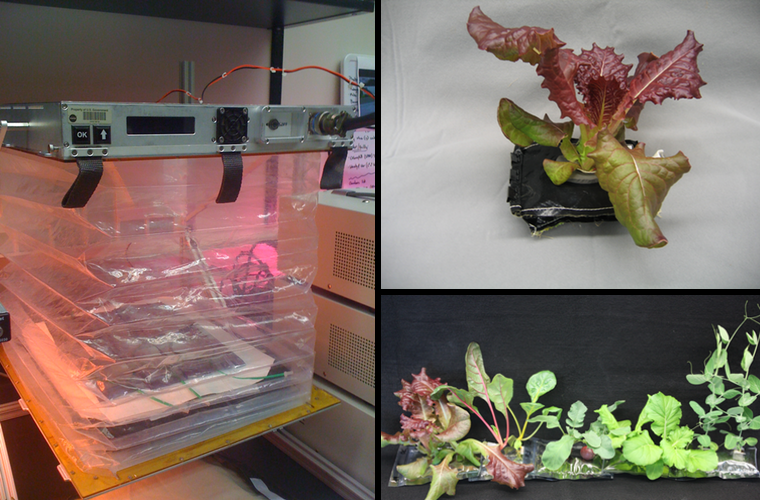NASA Goes Green: Astronauts Will Grow Lettuce in Space This Year
NASA is exploring a new way to feed astronauts on the International Space Station (ISS): grow lettuce.
In addition to 3D-printed pizza, NASA is getting creative as it attempts to cut down on shipping costs and work toward a self-sustaining spacecraft. Delivering just a single pound of food to the ISS costs about $10,000, according to NASA’s Howard Levine.
The new program, which will launch later this year, is designed to feed astronauts’ bodies and minds, according to NASA:
The Vegetable Production System (Veggie) is a deployable plant growth unit capable of producing salad-type crops to provide the crew with a palatable, nutritious, and safe source of fresh food and a tool to support relaxation and recreation. The Veggie provides lighting and nutrient delivery, but utilizes the cabin environment for temperature control and as a source of carbon dioxide to promote growth.

Credit: NASA
While edible plants could be grown in space in the next few months, NASA will bring the crops back to Earth for extensive testing before astronauts have a chance to eat them. The project is in its early stages, but NASA scientist Gioia Massa believes the technology already exists to scale space farming quickly, reports Modern Farmer:
Her team has been testing the system in NASA labs since 2011, working out the bugs and evaluating the technology. The growth chambers themselves, created by the Wisconsin company Orbital Technologies Corporation (ORBITEC), are lightweight and easily stored, with relatively simple watering and lighting systems. Each unit requires little space, but could easily be replicated on a large scale. And unlike its clunky, power-draining predecessors, the whole setup requires about as much energy as a desktop computer. “It’s really an ingenious little system,” she says.
Read Modern Farmer’s excellent article Space Farming: The Final Frontier for more information.








